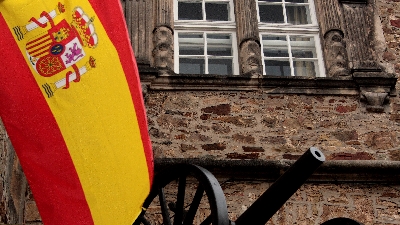When traveling in Spain, you will surely notice a much greater sense of political awareness and involvement among the people, particularly in Madrid, Barcelona, and the Basque Region in the north.
The regions of Spain
The greater sense of political awareness is due to the division of the Spanish country among various autonomous communities based on geographical and societal differences. Much like different regions of the US, there are distinctions in the language, gastronomy, and cultures. The difference is due to the fact that each of these areas is recognized as a self-governed region, based upon the different historical nationalities living in Spain, such as the Spanish, Basque, Galician, or Catalonian peoples.
Conflicting Ideologies
Because of the large mix of different nationalities among one country, there has been significant conflict throughout the history of Spain. During the rule of the dictator Francisco Franco, the autonomous communities that did not adhere to or follow the Spanish nationalist cause were severely oppressed. The ETA, which stands for “Euskadi Ta Askatasuna” or, “Basque Homeland and Freedom” in English, is a terrorist group that was formed to fight for the creation of a free country for the Basque people. Although they have renounced their militant tactics, they, and many other similar nationalist parties around Spain, continually work to influence the central government in Madrid. In Madrid, on the other hand, there is a strong pride in the Spanish state and many locals view the non-Spanish nationalists groups as detriments to creating a wholly united Spanish country.

After the fall of Franco
As the years have gone on since the fall of Franco, progress has been made to help these historical nations within Spain gain identity and representation in both local and central government through parties such as a Basque Nationalist Party (PNV) or the Galician People’s Party (PPG), although their own autonomous governments are usually split on votes to support full independence from Spain.
Socialism
In addition to these regional differences, socialism has always had a strong presence in Spain. The Spanish Socialist Worker’s Part (PSOE) has existed since 1879, and experienced equal oppression during Franco’s dictatorship, exiling and executing many prominent members. In the last decade, the PSOE has won the Spanish general election multiple times, however they lost in November due to a severe weakening of the Spanish economic climate. Socialist groups and worker’s unions are constantly active in Spain, and general strikes are common among transportation, airport, and other workers. Be aware of news headlines and flyers handed out on the streets so your travel plans are not affected.
The bottom line for travelers to Spain
When traveling in Spain, be aware of current political events, and try not to get into politics with locals; their opinions are usually greatly varied and extremely passionate. Wearing Spanish colors, flags, or other things can draw very negative attention in some regions, while wearing non-Spanish nationalist logos, shirts, or other things can draw equally negative attention from the other in areas with strong Spanish pride.